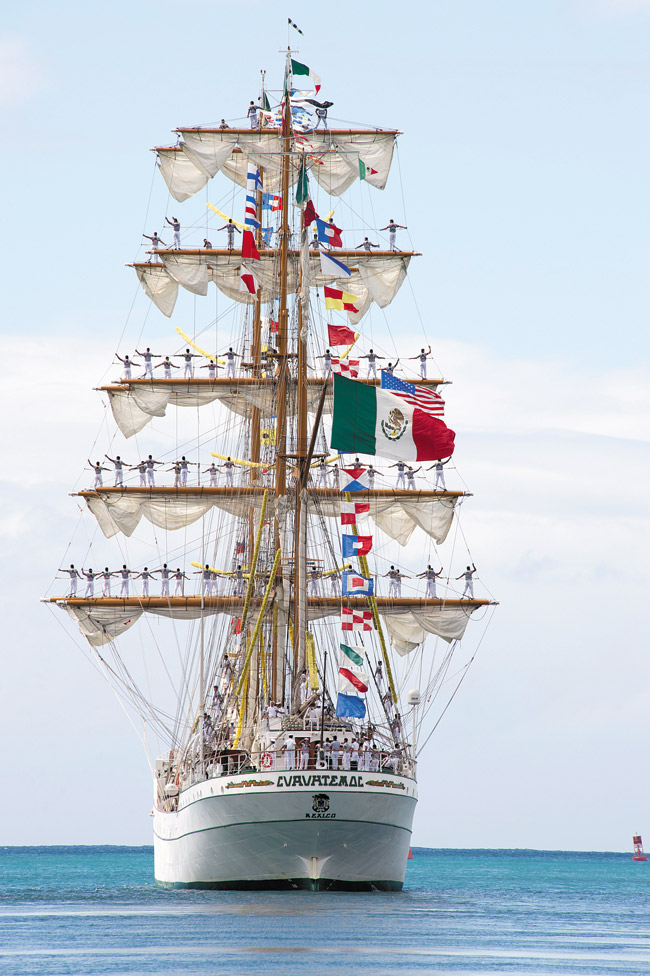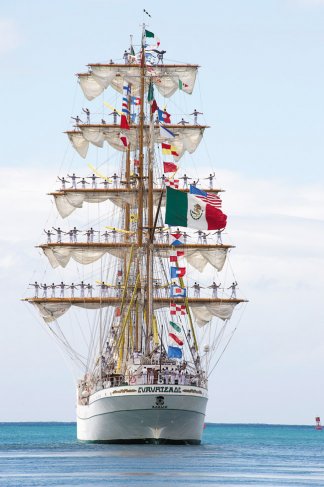Mexico’s Man In Hawaii
Andy Kluger wears many hats, including that of an international businessman, but the one he particularly enjoys is a sombrero — as Mexico’s honorary consul
Some of us speak of wearing many hats for our jobs, but Makiki resident and former Hawaii Air Ambulance owner Andy Kluger’s life is a virtual millinery.
mw-nm-101514-andyklueger-1
He is CEO of Early Bird Alert, a communication software company that connects patients directly with their doctors, clinics and caregivers, from Shanghai to Switzerland.
In San Francisco, he serves as chairman of The Mexican Museum, raising $62 million to build the new Smithsonian affiliate on Mission Street.
Then there is the construction company in Ohio Valley, telecommunications work with Rite Aid in Pennsylvania and, of course, he is an adjunct professor of engineering at City University of Hong Kong.
“I am United Airlines, that’s the truth,” says Kluger with a chuckle, while alternating among French, Russian and Spanish during the conversation. “I spend a week or two here in Hawaii when I can, but I spend a lot of time in Asia and Europe. I have offices in Silicon Valley; I have a construction company. I am an old man, but these companies keep going!”
The disparity in his jobs perhaps comes from his upbringing, which was all but ordinary. Raised in Mexico City by his American parents — his mother a schoolteacher, his father a publisher of newspapers and books — their lives were filled with the artists and writers that swarmed Mexico City in the post-World War II era.
Diego Rivera’s daughter baby-sat him while his parents met with the likes of Hemingway and Michener. Fearing he was lacking in culture, his folks sent him off to France to round out their son at age 15 — which he did, but not in the scholastic way his parents had hoped. His grades faltered there, but he did learn how to drink and smoke unfiltered cigarettes in the City of Light’s open-air cafes.
His wild oats sown, he moved to San Francisco, where he became an attorney and went to work for Mayor Joseph Alioto as his director of public information. The friends he made in the city led him to invest into what would become Silicon Valley — a wise business choice — but it was the boyhood friends he made in Mexico who would lead him to the best choices for his heart.
“The concept of ‘friend’ in America is very different than amigoin Mexico,” says Kluger, who moved to Hawaii in 1996 to purchase Hawaii Air Ambulance. “In Mexico, when you have a friend, it is really a friend — you have arguments but you are still friends. In America, you are best friends one week and enemies the next. Here it is more like acquaintanceship.”
These childhood friends of his grew up and became ministers in the Mexican government, and it was those amigos who brought the name Andrew Kluger to then-President Felipe Calderon as a good choice for honorary consul of Mexico to the state of Hawaii.
The position had became necessary, as in the past two decades the population of Mexicans in Hawaii has grown more than 150 percent to 38,000 residents. Even before Kluger was offered the honorary position, he had spent years reaching out to these immigrants from his native land.
“If they would get arrested, their work visas would run out or they would get injured, I would help them out,” says Kluger. “I was doing things for them for free. I didn’t charge the Mexican nationals — they were basically indigents, so I would fly them for free. I just did it as a public service, so that is how this got started.”
It was this charitable spirit that made Kluger a perfect choice for honorary consul, and while he has served in this capacity for the past seven years, perhaps his biggest coup was bringing in the Cuauhtemoc, a tall ship that serves as training vessel for officers in the Mexican navy.
The ship docked at Aloha Tower last week with its crew of 180 plus 69 cadets on a goodwill mission that had taken it from Ecuador to Alaska.
Though built in 1982, it is outfitted just like the tall ships of the 18th century, with three masts that stand more than 150 feet tall and 20 billowing white sails.
Kluger had petitioned the ship to sail to Honolulu to draw attention to the Mexican population here in the Islands — many of whom go unnoticed as they often work in the agricultural and service industries — and to serve as a center of solidarity for the entire Hispanic population of the Islands, which now stands at more than 100,000, or 10 percent of our total residents.
During the ship’s stay, Kluger hoped to have more than 25,000 Hispanic visitors walk the decks of this magnificent vessel and have a chance to speak with some of the Mexico’s best and brightest.







